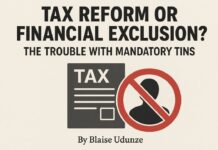By Niyi Jacobs
As the Christmas season nears, Nigerians are enduring a deepening cash shortage that is amplifying the hardships of everyday life. Rural areas, in particular, are struggling with limited access to banking services, poor mobile network reliability, and an overall lack of cash, making it even harder to navigate the economic downturn.
The shortage is taking a toll on healthcare, with patients being denied treatment, and women forced to give birth at home due to hospitals refusing care for lack of payment. Small businesses, especially in food and retail sectors, are experiencing plummeting sales as consumers cut back on spending in response to the cash crisis.
Meanwhile, Point-of-Sale (PoS) operators are seizing the opportunity, charging high fees for cash withdrawals, while banks ration cash and impose N10,000 per transaction limits, exacerbating the public frustration. Even with claims of upgraded banking infrastructure, mobile banking apps continue to malfunction, leaving many without access to their funds.
The Central Bank of Nigeria (CBN) has pledged to take action against banks failing to ensure cash availability, but critics argue that the real problem lies in the syndicates diverting cash to PoS operators. The Human Rights Writers Association of Nigeria (HURIWA) has condemned the situation, calling it economic sabotage
Business owners like Mrs. Folashade Ogunremi in Lagos are seeing their operations suffer as customers are unable to spend, while the cost of acquiring cash continues to climb. With no clear resolution in sight, Nigerians are facing a bleak and uncertain festive season














